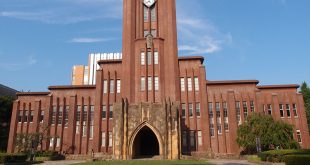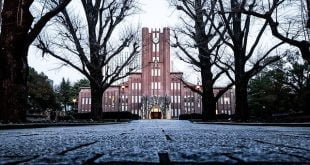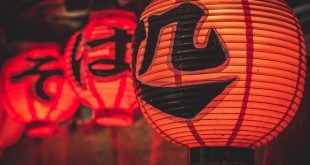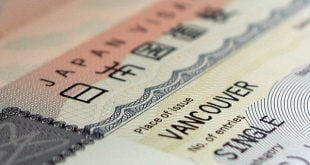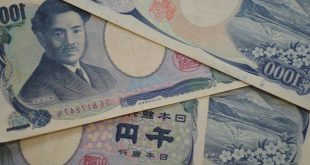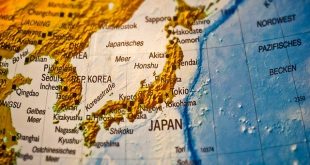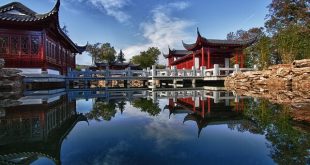The higher education system in Japan is an integral part of the country’s culture and political status. In fact, the academic accomplishments of students in Japan are the highest in the country and in the world. For that reason, the ministry of education controls public policy and management and organization in Japan.
The minimum standards of curriculum, qualification, and number of professors are set by the ministry of higher education. The ministry of higher education focuses on these standards for the purpose of participating in world university ranking competitions. That is how universities in Japan are featured in world university rankings.
Read our complete guide to studying in Japan
Table of Contents
Japan higher education statistics: Why is Japan’s education system so good?

The higher education system in Japan ranks high internationally in terms of quality and performance. The average student achievements in Japan are higher than the average set by the Organization for Economic Co-operation and Development. Moreover, that makes Japan one of the most successful member state in terms of developing student skills and capabilities.
An evidence of how education is rooted in Japanese culture is that approximately 90% of Japanese students complete their higher education. Additionally, 70% of them go on to pursue postgraduate studies. Moreover, this makes Japan one of the most educated countries in the world.
Number of higher education institutions in Japan

- There are a total of 783 universities of higher education in Japan: 86 national universities, 92 local universities, and 605 private universities.
- There are 372 colleges in Japan: 22 of which are local and 350 are private.
- The total number of technical colleges in Japan is 57: 51 national, 3 local and 3 private.
Types of institutions of higher education
In Japan, there are four types of higher education: national, local, public and private. Higher education starts upon completion of 12 years of education (elementary and secondary). Moreover, higher education is provided through 5 types of institutions: Junior colleges, Colleges of technology, Professional training colleges, Universities and Graduate schools.
Junior colleges
The origin of junior colleges in Japan dates back during the Occupation after World War II. These are institutions which offer mainly home economics, domestic science, education, humanities, nursing and sociology studies. Education at junior colleges usually lasts for two or three years.
Colleges of technology
Colleges of technology are the place you should go if you want to major in the field of engineering and industry, merchant shipping and other related study areas. Programs at colleges of technology in Japan last for 5 years. Those who choose to go with the industrial track have the choice between engineering subjects, information technology, industrial chemistry to name just a few.
Professional training colleges
These are institutions that offer students training for a vocational life. They offer vocational and technology-focused education, preparing students for a career in a particular industry. Courses lasts from one to two years.
Universities and colleges
In Japan, there’s no distinction between the two, and they are interchangeable as they provide undergraduate programs. Study duration lasts from 4 years to 6 years for medical specialties: medicine, dental medicine, pharmacy and veterinary science. Universities in Japan are either national, public or private ones.
Graduate schools
These are institutions for postgraduate studies in Japan. For a master’s degree, study duration is 2 years and for a doctorate, courses last for up to 5 years.
Learn how to apply for university studies in Japan
Degrees and qualifications from graduate education in Japan
Qualifications in the higher education system in Japan depend on the type of institutions students are enrolled in.
In graduate schools, there are academic and professional degrees, either for a master or for a doctorate. You can get your master’s degree after 2 years and your academic doctoral degree after 5 years study. If you register in a professional degree program, you get either a professional master’s degree (2 years study), a master of education (2 years study) or a Juris Doctor’s degree after 3 years study.
Read also our guide about master’s study in Japan.
At universities, you complete your studies to earn a bachelor’s degree, whether academic or professional if you study in a vocational university. At specialized training colleges, you earn a diploma after 2 years study and an advanced diploma after completing 4 years study.
And finally, at junior colleges, the qualifications are called associate degree, which also can be an academic or a professional-type degree.
Japanese college courses overview
Students (including international students) distribute themselves proportionally according to primary fields of study. The distribution goes as follows:
- University specialties: the topmost chosen specialties are: social sciences (includes subjects such as economics and politics) followed by humanities.
- College specialties: the top three most chosen specialties are: education, home economics, and social sciences.
- Professional training: the top choices are healthcare, culture, education, and engineering.
Learn also which are the best courses to study in Japan.




 Aljawaz Your guide to study abroad
Aljawaz Your guide to study abroad
